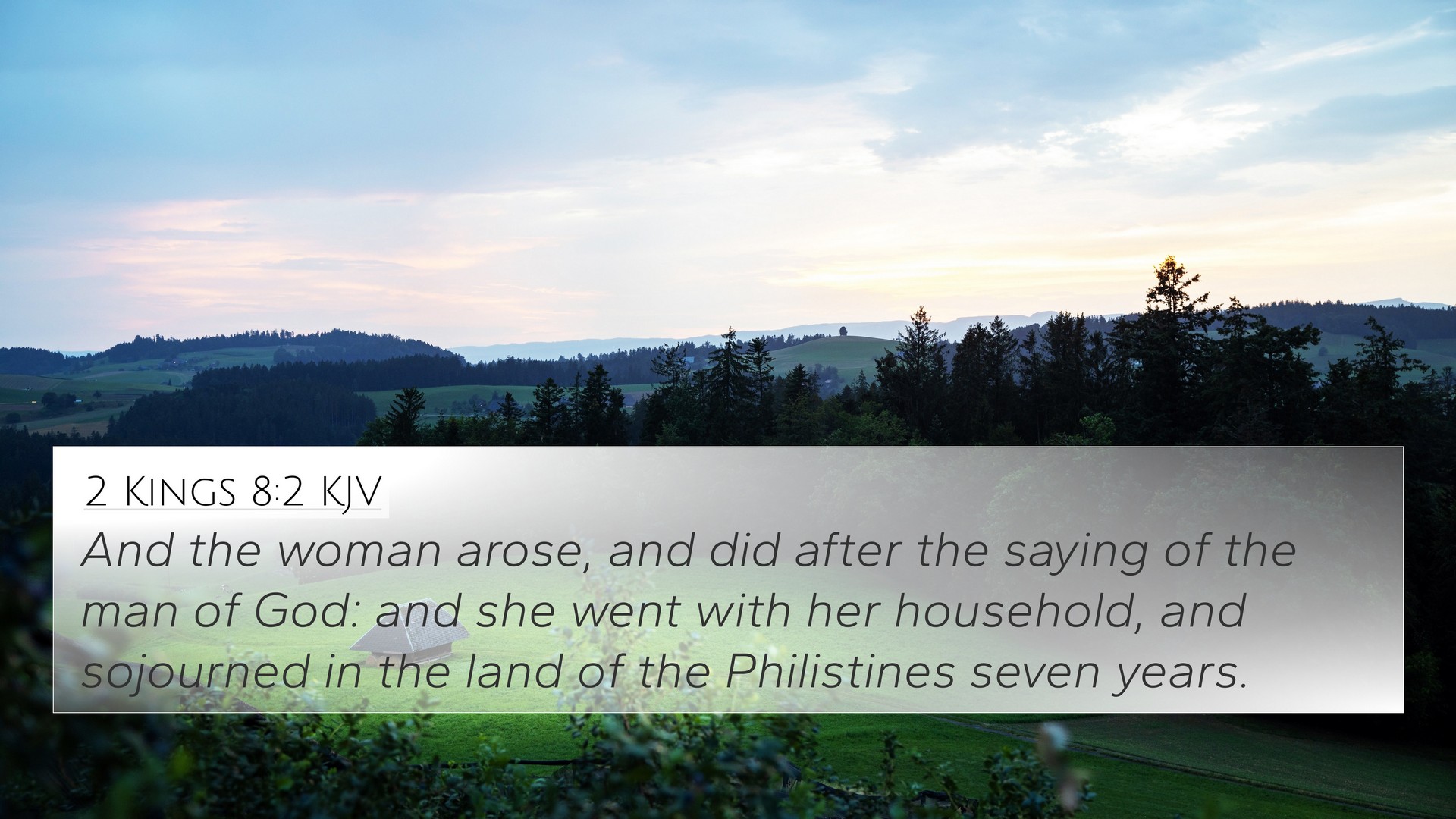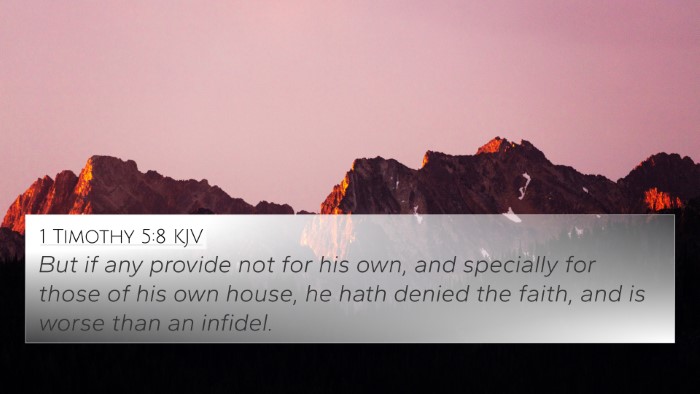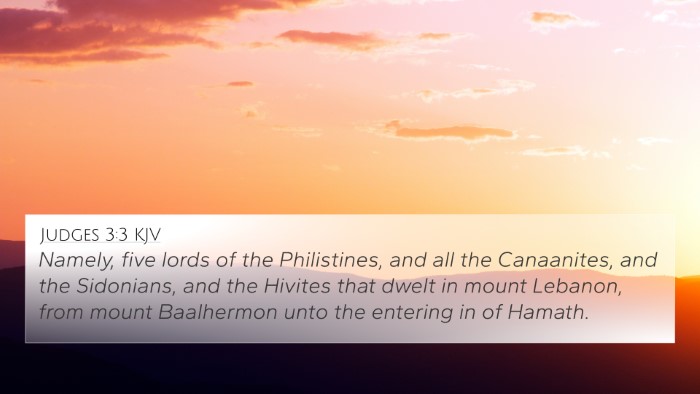Understanding 2 Kings 8:2
In the verse 2 Kings 8:2, we find a depiction of the actions of a woman from Shunem who seeks assistance from the king during times of famine. This passage speaks volumes about faith, obedience, and the providence of God in troubling times. Below is a summary of the verse's insights derived from esteemed public domain commentaries, providing a comprehensive understanding crafted for those seeking deeper scriptural interpretations.
Verse Explanation
2 Kings 8:2 states:
"So the woman arose, and did after the saying of the man of God: and she went with her household, and sojourned in the land of the Philistines seven years."
Contextual Background
This particular narrative captures the span of a very significant period in Israel's history where the threat of famine loomed large. The Shunammite woman, who had previously shown kindness to the prophet Elisha, now seeks to follow his divine instructions in desperate times.
Commentary Insights
-
Matthew Henry's Commentary:
Matthew Henry emphasizes the woman's obedience to the command of the man of God, illustrating that true faith involves action. This act of moving to a foreign land underscores her reliance on God's provision and prophetic guidance.
-
Albert Barnes' Notes:
Barnes notes that the decision to sojourn in the land of the Philistines could reflect the severity of the famine in Israel. This act also symbolizes a temporary departure from her home, signifying sacrifice and trust in God's overarching plan for protection and sustenance.
-
Adam Clarke's Commentary:
Clarke delves into the implications of her historical context, stating that the Philistines, while traditionally enemies of Israel, were a viable refuge during the economic crisis. This contradiction highlights God's ability to use unexpected means to provide for His people.
Theological Themes
This passage introduces several theological themes:
- Obedience: The woman's immediate response to Elisha's words highlights the importance of following divine directives, even in uncertainty.
- Divine Providence: Her journey to the Philistine land underscores that God can orchestrate circumstances for protection and provision, regardless of social or geographical boundaries.
- Faith in Action: The act of leaving her home signifies a profound trust in God's promise of care during a time of crisis.
Cross References
This verse connects to numerous other biblical passages, enriching our understanding through various scriptural dialogues:
- 1 Kings 17:9-16: Elijah's encounter with the widow of Zarephath during a similar famine situation.
- Genesis 12:10: Abraham's sojourn in Egypt due to famine, showcasing the necessity of leaving home for survival.
- 2 Kings 4:8-17: The earlier account of the Shunammite woman's kindness towards Elisha, establishing her character and relationship to the prophet.
- Isaiah 26:20: A call to hide for a little while until God's indignation passes—a theme resonant with the woman's decision to leave.
- Hebrews 11:8-10: The faith of Abraham, who obeyed God by leaving his homeland, paralleling the actions of the Shunammite woman.
- Psalm 37:3-5: Trust in the Lord and do good for sustenance—a principle that reflects the woman's faith-based journey.
- Acts 11:28: Prophecy of a great famine which prevailed during the time of Claudius, linking with the Shunammite's context of famine.
Conclusion
The narrative of 2 Kings 8:2 serves as a profound reminder of the blessings of obedience to God’s prophetic words in challenging times. Through the integration of insights from various commentaries and the exploration of thematic Bible connections, we uncover the richness of faith embedded in this passage.
For those engaging in Bible study, utilizing tools for cross-referencing and a comprehensive Bible concordance can enhance understanding. Incorporating cross-reference Bible study encourages deeper exploration of these connections, allowing believers to see the interconnectedness of biblical themes across the scriptures.





